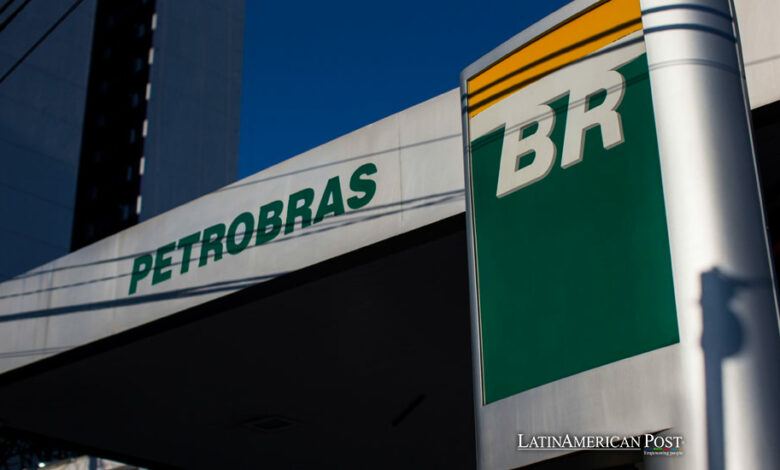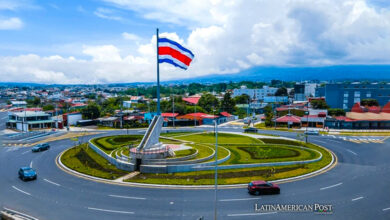Tensions Rise Over Brazilian Amazon Drilling Amid Indigenous Concerns

Petrobras, Brazil’s state-run energy firm, faces intense resistance as it pushes to drill for oil off the northern coast of Brazil in the Foz do Amazonas Basin, sparking environmental and indigenous rights debates on a national scale.
A significant environmental and cultural battle is unfolding in the lush, biodiverse expanse of Brazil’s northern coast. Petrobras, the state-run oil giant, faces opposition from Indigenous groups and environmental agencies over its plans to explore oil in the Foz do Amazonas Basin. This project, which could open one of Brazil’s most promising and ecologically sensitive areas to drilling, highlights the ongoing conflict between economic development and environmental preservation in Latin America.
Indigenous Concerns Over Oil Exploration in Foz do Amazonas Basin
The Foz do Amazonas Basin, near the mouth of the Amazon River, is not only rich in biodiversity but also culturally significant to numerous Indigenous communities. These groups have historically depended on the pristine natural environment for their livelihoods, which is now threatened by the prospect of large-scale oil exploration.
In July 2022, the Council of Chieftains of the Indigenous People of Oiapoque (CCPIO), representing over 60 Indigenous villages, voiced their concerns by seeking federal intervention to prevent Petrobras’ exploratory activities. They argue that any exploration should only proceed after a thorough consultation process, as required by Brazilian law and international agreements like the International Labor Organization Convention 169, which mandates prior consultation with Indigenous communities on matters that affect them.
The proposed drilling’s significant political and economic implications further complicate the situation. Brazilian President Luiz Inácio Lula da Silva and Energy Minister Alexandre Silveira have strongly supported the project, emphasizing Brazil’s right to utilize its natural resources for national development. According to Silveira, the Foz do Amazonas block could yield over 5.6 billion barrels of oil, potentially the most significant discovery in decades.
Petrobras contends that the drilling, planned to occur about 175 kilometers offshore, will not directly impact Indigenous communities or the coastal environment. However, local leaders and environmentalists argue that any oil spill or related accident could devastate the coastal mangroves and the broader ecosystem, which supports fish populations and plant life vital to the Indigenous peoples’ subsistence.
Delays in Decision-Making and International Scrutiny
Brazil’s environmental agency, Ibama, initially denied Petrobras a drilling license due to potential impacts on the sensitive coastal biome and Indigenous groups. Despite this, Petrobras appealed, prompting further studies recommended by the Indigenous affairs agency Funai. These studies aim to assess the environmental impacts comprehensively before any drilling approval.
The ongoing disputes and required assessments have delayed the decision, potentially pushing it to 2025, coinciding with Brazil hosting the COP30 climate summit. The timing could heighten the international scrutiny of Brazil’s environmental policies and its handling of Indigenous rights, presenting a critical juncture for the country’s environmental leadership on the global stage.
The Indigenous communities and their leaders have intensified their opposition. At a public hearing in May 2023, community voices were split, with some local leaders expressing conditional support for the project if it brought jobs and development, while others staunchly opposed any exploration without thorough community consultation and guaranteed environmental safeguards.
The global community, particularly environmental and human rights organizations, has watched the situation. The international pressure could influence the Brazilian government’s decisions to balance its economic interests with its environmental commitments and global image.
Broad Implications for Latin America and Beyond
The controversy over drilling in the Foz do Amazonas Basin encapsulates Latin America’s broader challenges as it navigates the dual imperatives of economic development and environmental conservation. For Brazil, the outcome of this dispute will not only affect the immediate area but also set a precedent for how the nation manages its rich natural resources in harmony with its commitments to its Indigenous peoples and global environmental standards.
Also read: Brazil Tackles Credit Card Debt with New Interest Rate Caps
As the debate continues, the voices of the Indigenous communities remain central, advocating for a model of development that respects their rights and the integrity of the Amazon. The resolution of this conflict will resonate far beyond the borders of Brazil, influencing conservation and resource management policies across Latin America and around the world.





